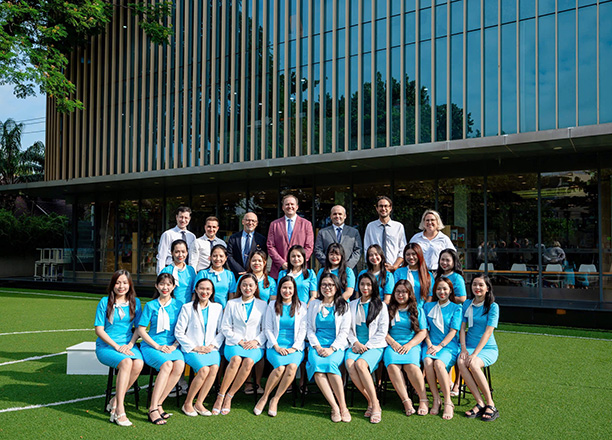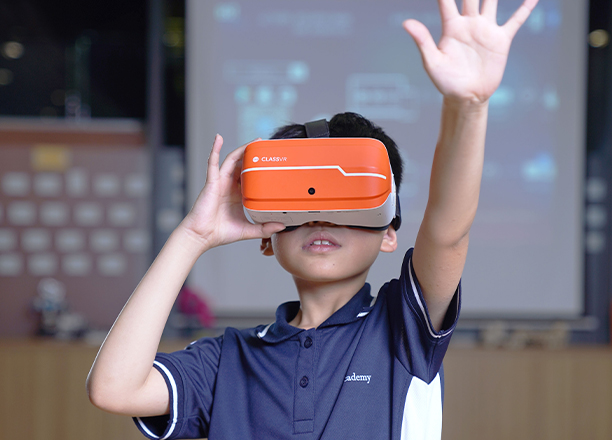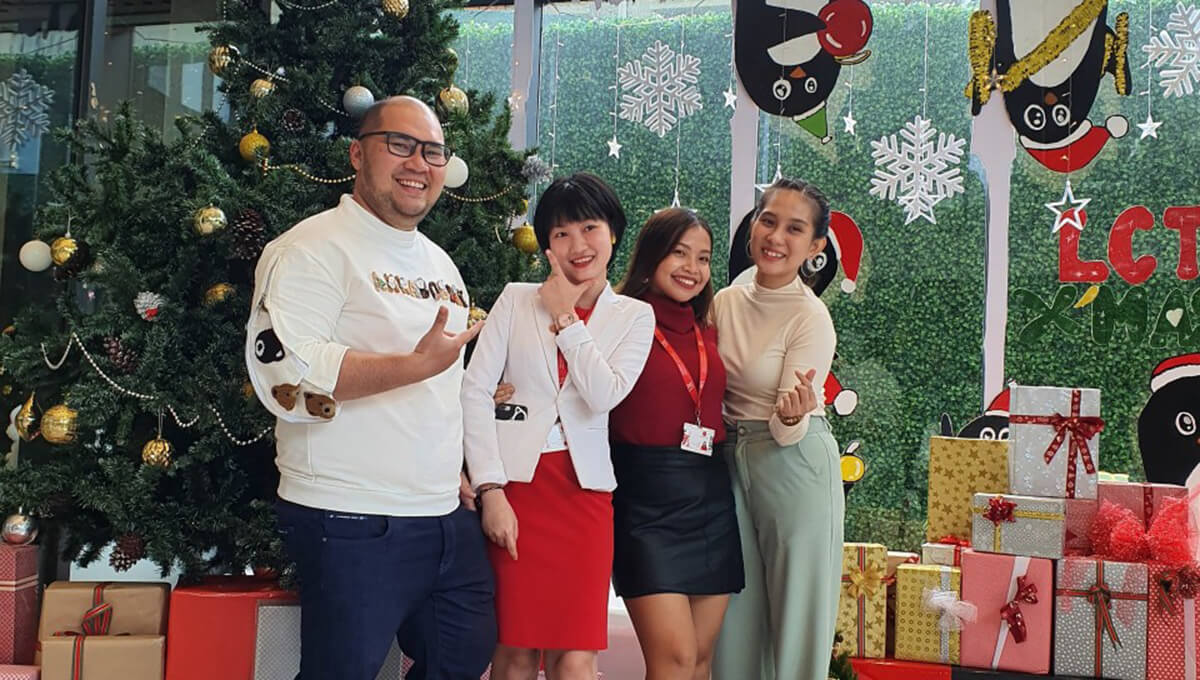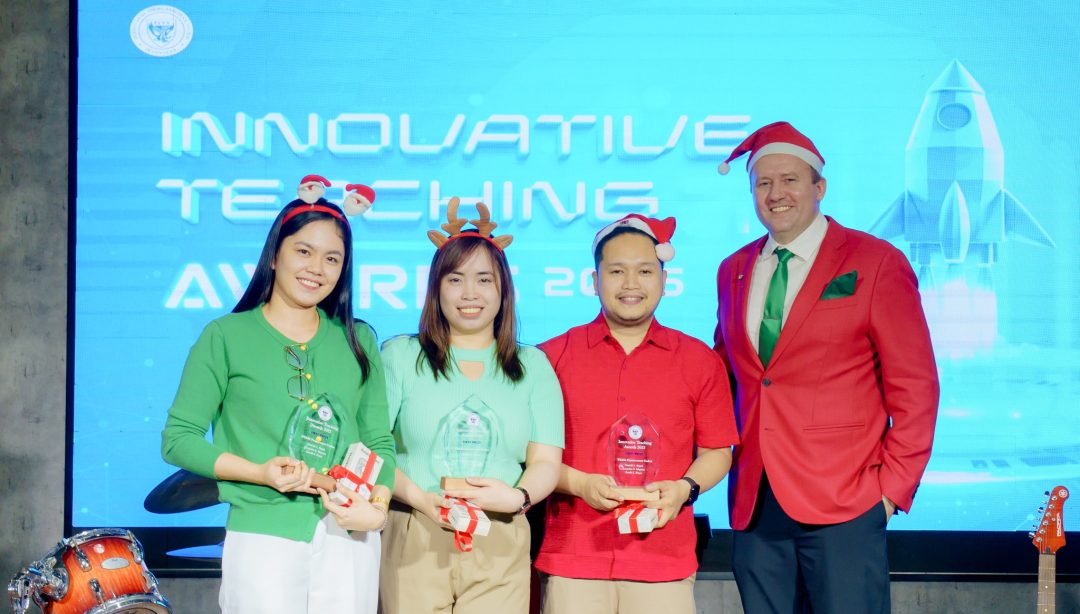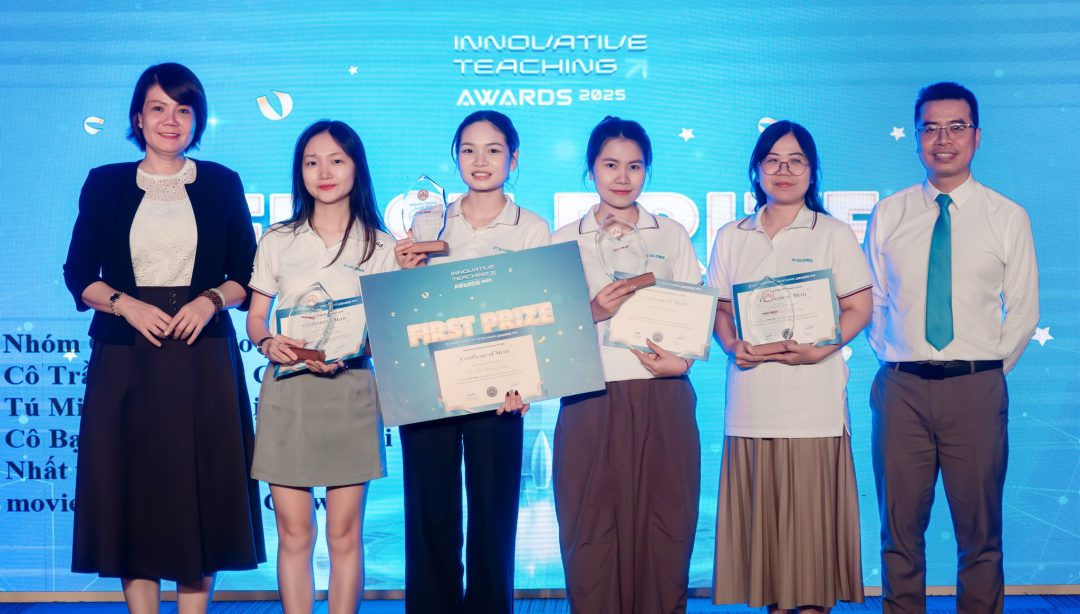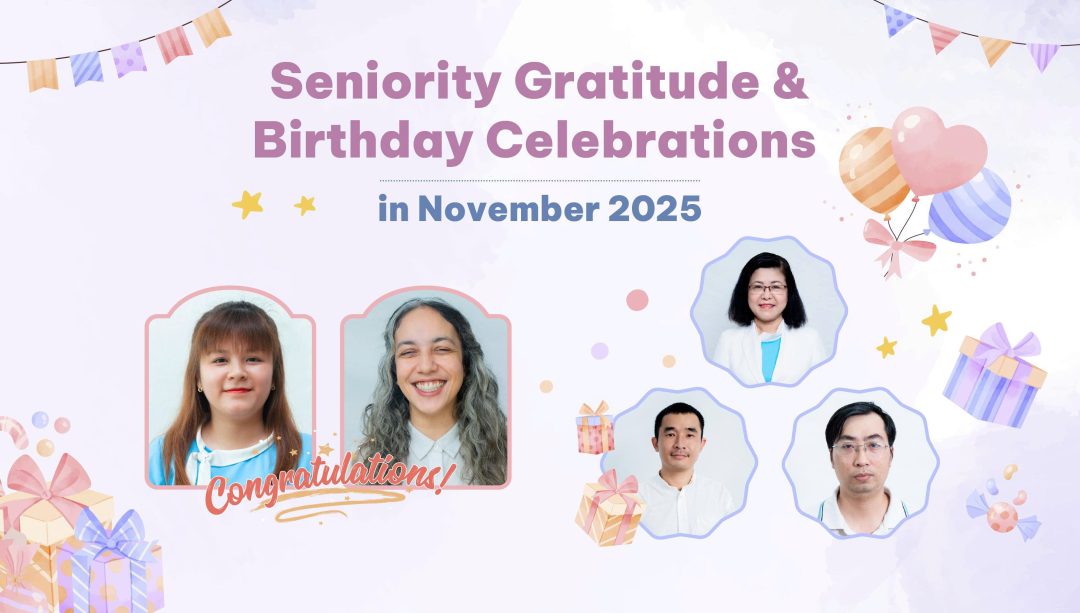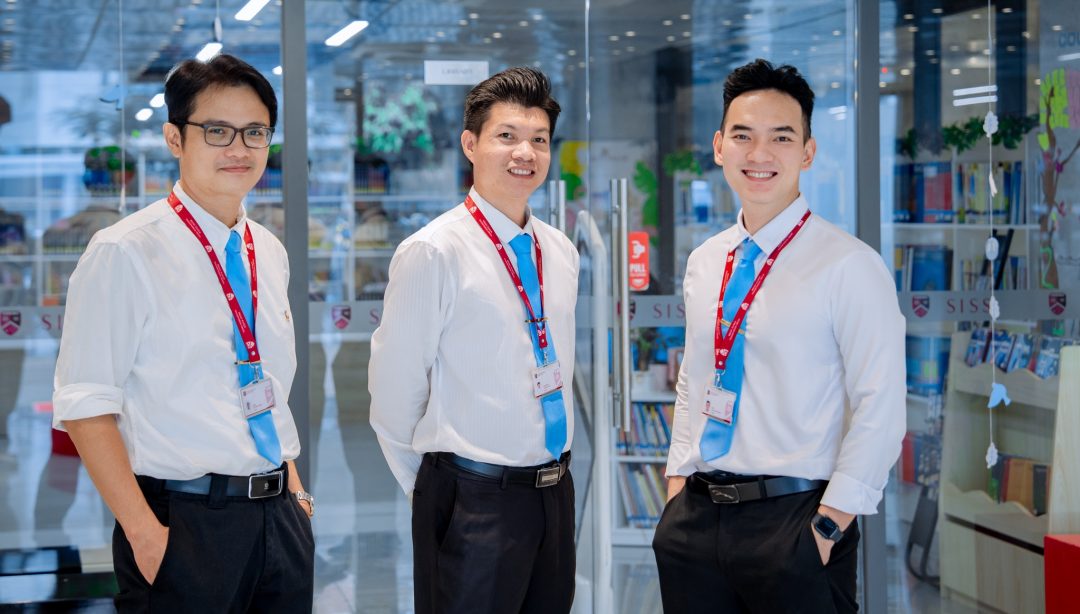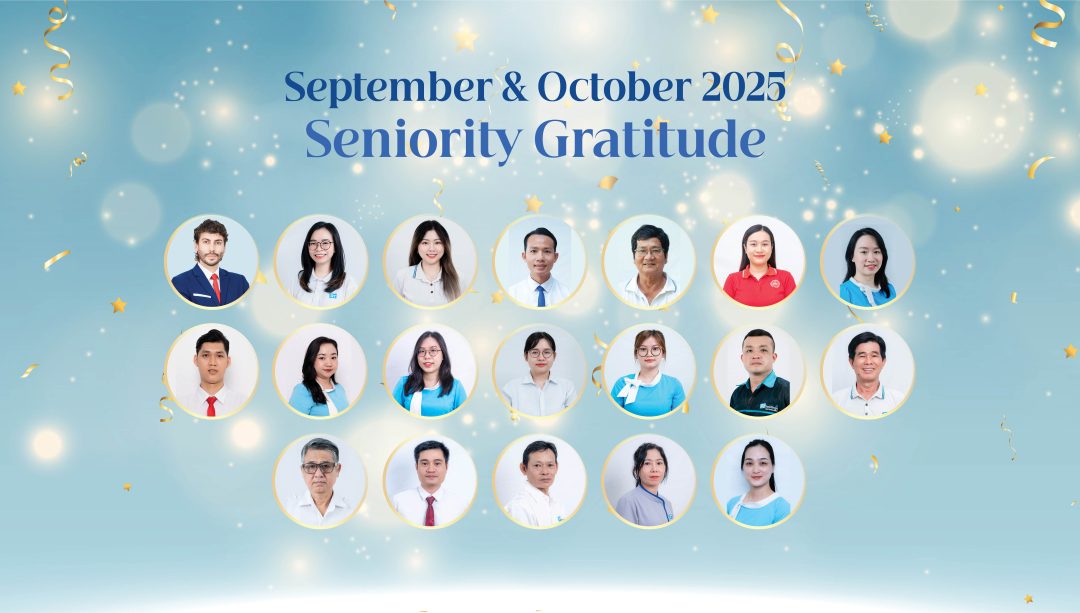“Have a dream, set clear goals, and strive for that dream!”
Mr. Tran Quoc Bao, one of the young and talented Vice Principals of WASS, is renowned for being full of enthusiasm, courage, and curiosity. Not only does he fulfill his duties well but he is always ready to get involved in any internal event with his colleagues.
Mr. Tran Quoc Bao’s workspace is organized in a plain but orderly fashion. On his bookshelf is a small portion, dedicated to his commemorative photos and the sporting competitions that he’d participated in. The love that he has for the Indochina Group and the people here is clear to see. It is shown in his motivation to strive every day on the journey of his career. Let’s get to know our young and enthusiastic Vice-Principal!
What is the main reason you have been a member of the WASS team for the past 5 years? Can you share your most unforgettable memory with your colleagues at WASS?
After finishing my studies in the Netherlands, I joined the Western Australian International School System as an Academic Assistant to the Board of Directors, developing the International Baccalaureate Diploma Programme. My time at WASS has given me the opportunity to study, practice, and develop my expertise. I feel that WASS is an open environment where employees can feel free to speak up, reflect, and be listened to by their managers. And most importantly, WASS and Indochina Group organize annual team building sessions to share their development strategy with teachers and staff. Personally, this helps me to understand the Group’s vision and philosophy clearly, thereby enabling me to develop my own plans for that common goal. In addition, I’ve always received support from my superiors, colleagues, and members of other related departments. All of this has given me the drive to contribute to WASS from when I first joined, to now, and I’m sure, way into the future.
I’ve made so many memories with my colleagues at WASS during the last five years. These range from decorating classrooms to organizing Open Days at new campuses; from the school’s opening ceremony to 12th-grade farewell parties; there are year-end parties and team-building activities that allow me to meet all of my colleagues in the Group. It is difficult to select a memory that I remember or cherish the most because each memory is special in its own way.
Recently, the concept of a “Healthy, Happy School” has been mentioned a lot in education. As a teacher with many years of experience, in your opinion, what has had the most impact on forming a “Happy – Healthy School”?
The notion of happy schools is derived from UNESCO’s goal to promote peace through education, and more specifically from the main pillars of learning, which are essentially learning to live together and study. The goal is to ensure our students’ confidence, comfort, and happiness. And the road in that direction begins with ensuring the satisfaction and happiness of the teachers. That is why, over the years, Indochina Group has consistently paid attention to and created conditions for members to participate in professional training nationally and globally, and learn more about educational innovation. The Group organizes competitions and team-building events to connect members together and create motivation to help teachers always be happy and cheerful.
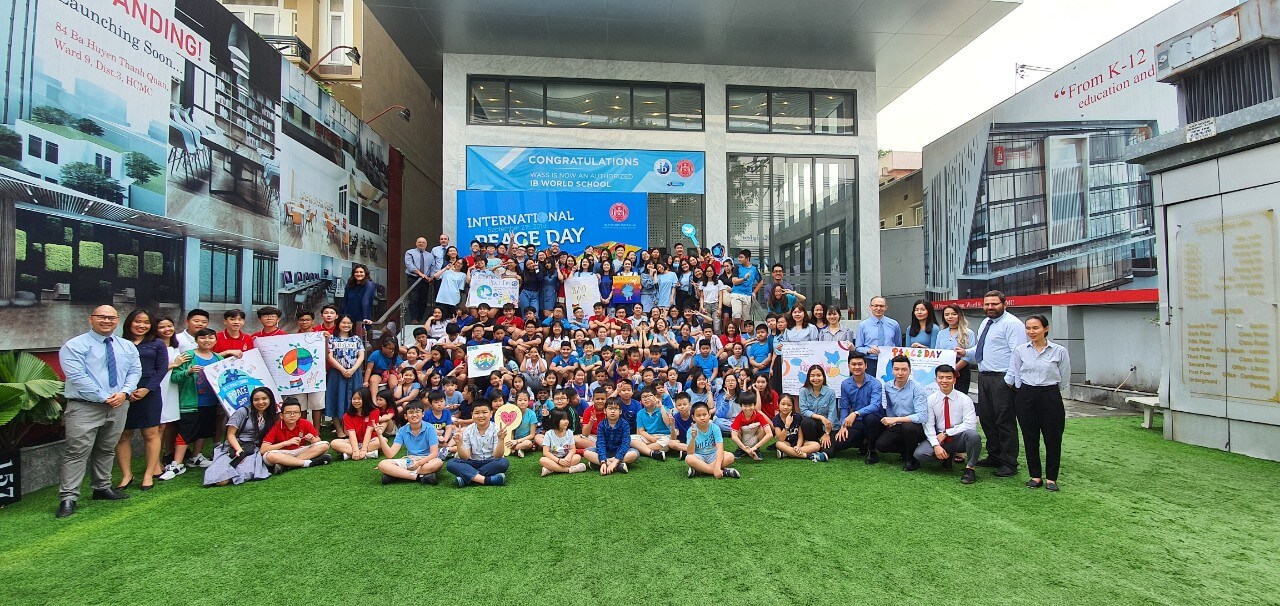
What is the biggest difference between modern education and traditional education? What requirements does this entail that teachers must always meet in order to do their job well?
The biggest difference between education today and traditional education is the interaction between the teacher and the learner. In modern education, students are encouraged to express their perspectives on any matter; encourage self-reflection and self-mastery; enhance style, ability to think independently, communicate and be creative. Typically at WASS, and Indochina Group, educational methods in recent years have changed: we now evaluate students through the efforts they make throughout the learning process rather than just through final exams. We focus on training students’ learning autonomy, enhancing individual learning combined with collaborative learning through project-based learning, play-based learning, and inquiry-based learning.
The International Baccalaureate (IBDP) is the most popular academic program in the world, have you encountered any difficulties as a Program Coordinator in the face of indigenous barriers?
IBDP is recognized across the world as a high-quality diploma program that attempts to instill in pupils the attitudes, knowledge, and abilities required for 21st-century education. In terms of educational administration, this program requires planning, organizing, directing, and monitoring the school system in order to achieve the International Baccalaureate Organization’s (IBO) criteria. At WASS, I am fortunate in that I always receive timely guidance and support from the Board of Directors and the School’s Board of Principals, as well as assistance from other departments throughout the implementation of the program.
One of the most noteworthy challenges is training the students participating in the IB program, especially those who transfer from other schools to WASS, in the skills required. These include academic integrity and time management. A special feature of the IBDP program is the learner autonomy it provides throughout the learning process. For example, students will be notified of the time and deadline for submitting assessments from the beginning of the school year. This requires IBDP students to know how to make their own study plans so that they can properly allocate time to complete assignments and submit assignments on time.
If you had one piece of advice for young colleagues at Indochina Group, what would it be?
“We are never in lack of money. We lack people with dreams, who can die for those dreams.” – Jack Ma –
When working in an organization that is constantly evolving, I think that one should always have a clear goal, have a dream, and strive for that dream. We can start by focusing on what we do, and our purpose, on a much deeper level. That means that in addition to performing the required tasks when we go to work, we should always try to understand why we do task A, or task b, etc. and how our results will have an impact on the big picture and the common goals of the organization, its schools, and their students. Deepening our responsibilities is the secret to helping us expand our understanding and grow as individuals. Everyone can make mistakes. As long as you learn from them and avoid repeating them, it shows that you are learning. Besides, in an era where everyone has access to information and assistive devices, one’s attitude and diligence play a crucial role in their performance.
In the future, what plans are you for developing your career as well as that of the whole Group?
In the short term, I plan to get involved in more training courses on leadership and executive skills, particularly at the Institute of Accounting and Business (IABM). In terms of long-term goals, I plan to pursue intensive graduate courses in Educational Leadership.
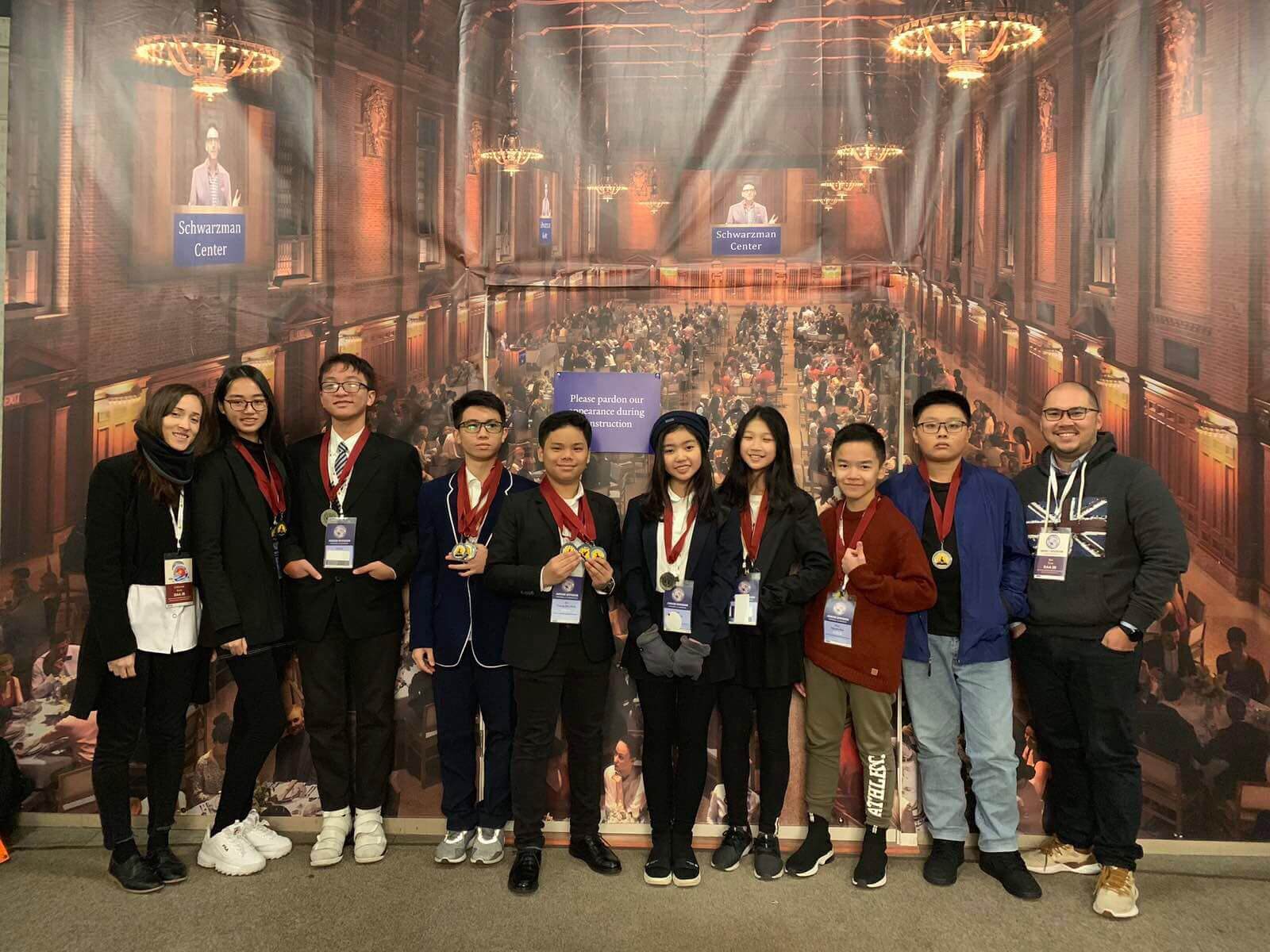
What would you say to encourage your colleagues to grow their confidence, and dare to break through their comfort zone to become the best version of themselves?
I have the opportunity to meet each individual and work with them every day, they are all outstanding people. And I learn from them how to help us improve every day so that we can become the best version of ourselves.
Many begin by renewing their daily lives. They boldly change the way they teach and share activities with the group at school events. They challenge themselves with new things and act on their goals. On weekends, I often see their adventures on social media, where they are shown exploring new places and broadening their horizons. They join sports clubs and fitness groups to develop themselves and become healthier.
I have also met people who have yet to step out of their comfort zone and step on the path to becoming the best version of themselves. As Lao Tzu wrote, the journey of a thousand miles must begin with the first step. If you don’t walk, you will always be at the starting line.
In one’s career, it is sometimes difficult to avoid disagreements with colleagues. At those times, what do you usually do to lift your spirits and resolve conflicts with your colleagues?
To resolve disagreements, I often rely on the Conflict Management Framework introduced by K.Thomas and R.Kilmann (2009) to be able to identify the type of conflict and come up with a solution.
The Thomas-Kilmann instrument is designed to measure an individual’s behavior in “conflict situations”, situations where two people’s interests seem to be out of sync. In such conflict situations, we can describe an individual’s behavior in terms of two dimensions: (1) assertiveness, the degree to which an individual tries to satisfy one’s own interests. and (2) cooperativeness, the degree to which an individual tries to satisfy the other person’s interests. These two fundamental aspects of human behavior (assertiveness and cooperation) can then be used to identify five different ways of responding to conflict situations: Competitive, Accommodating, Avoiding, Collaborating, and Compromising.
The biggest thing I have learned is “Don’t ignore everything when there is a conflict”. Instead, we should arrange a discussion with a colleague to resolve any conflicts or personal problems. Sitting down to talk and heal is the golden rule to helping people understand and cooperate better.
What do you most value in your teaching profession?
The thing I most value and cherish in my teaching profession is seeing generations of students grow up day by day, not only in the process of acquiring knowledge but also in developing personalities. After a long time of pursuing the IBDP International Baccalaureate Program, the first class of IBDP class will finally take the graduation exam in May 2022. This is an immense milestone for me as IBDPCoordinator. I hope the students achieve great results and get accepted into the universities of their dreams.
